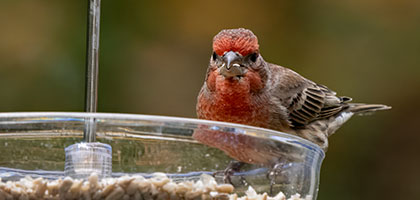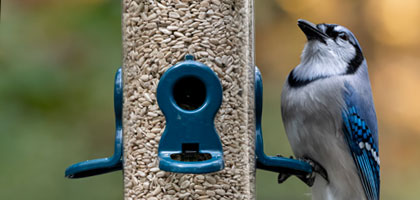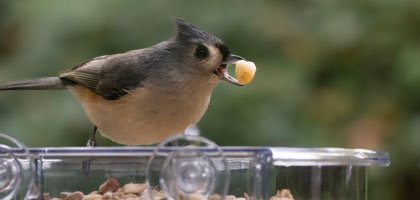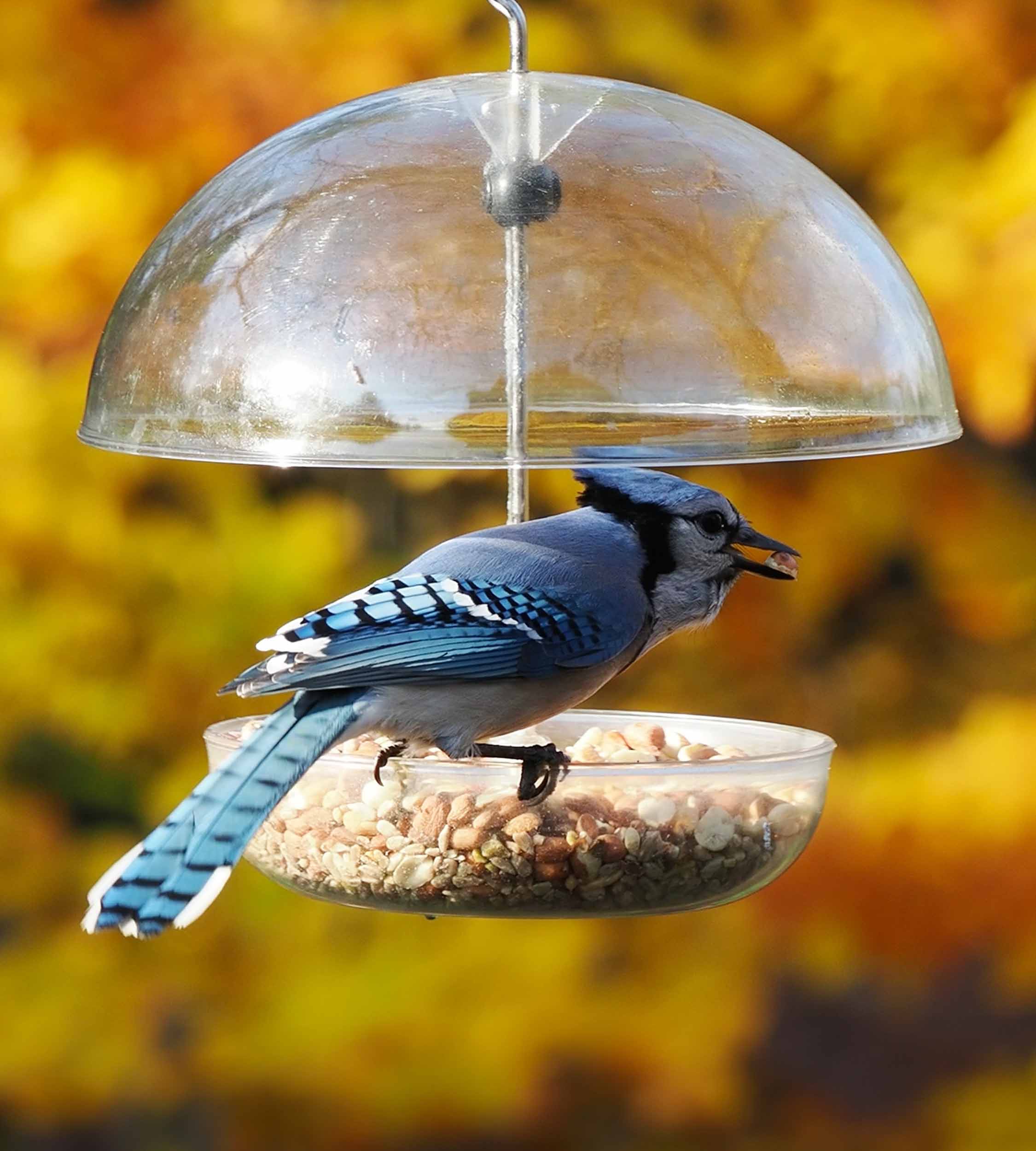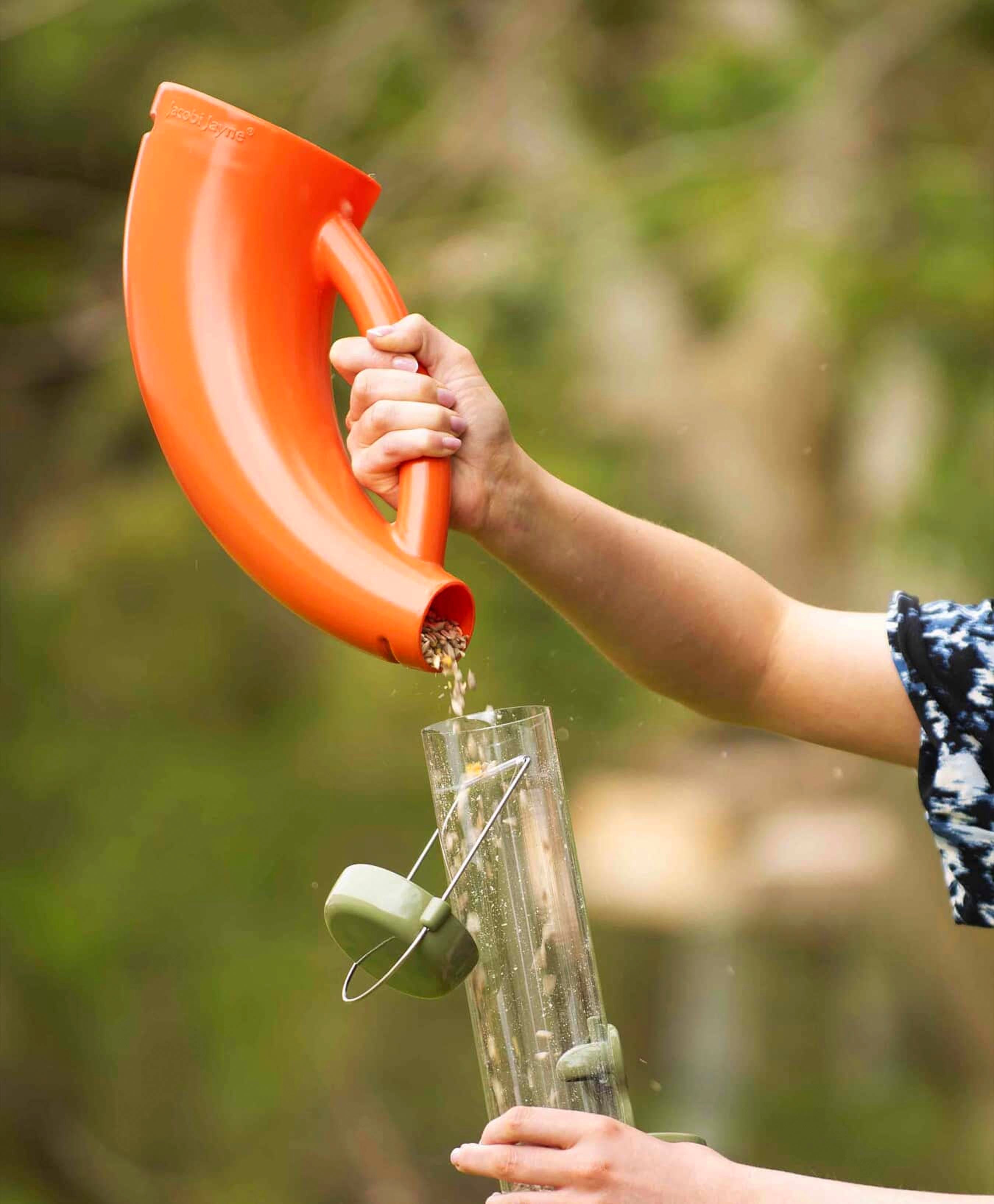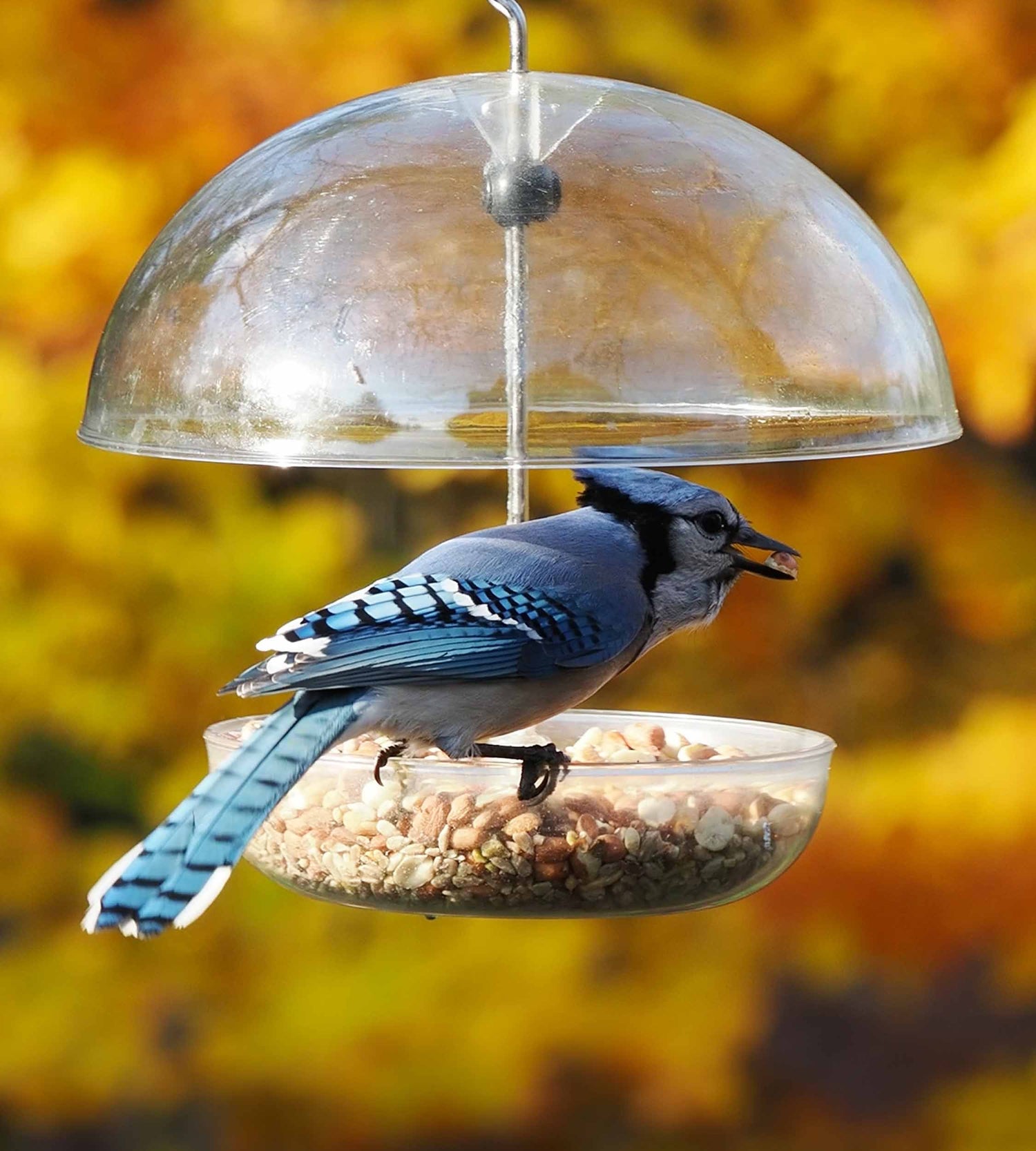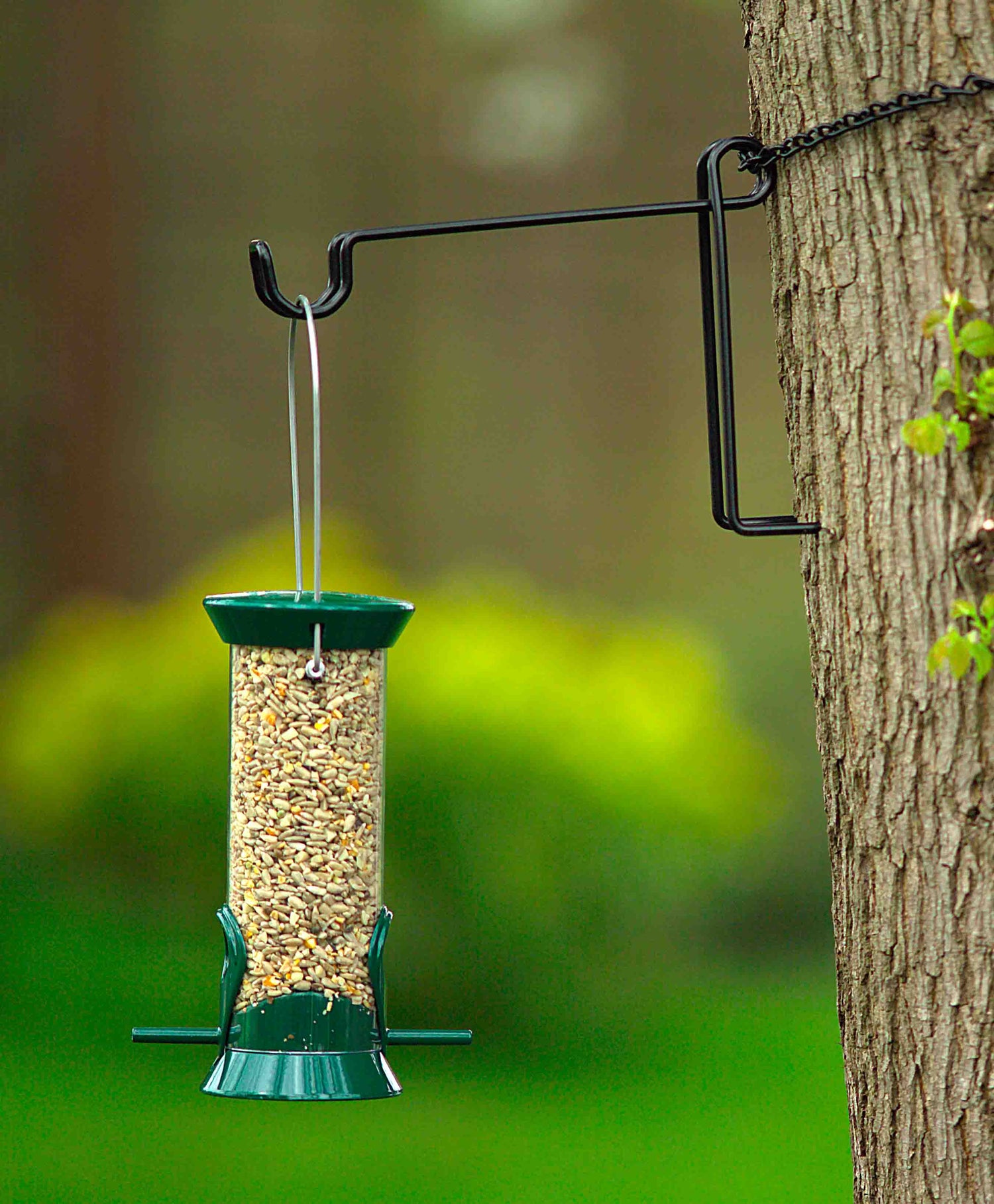Robins are a common sight in many backyards. Their vibrant red breasts and melodious songs make them a favorite among bird enthusiasts.
But what do these charming birds eat? Do they enjoy bird seed like many other backyard visitors?
The answer might surprise you. This guide will delve into the dietary habits of robins, answering the question: "Do robins eat bird seed?"
Join us as we explore the fascinating world of robins and their diet, and learn how to attract these delightful birds to your backyard.
The Natural Diet of Robins
Robins are omnivorous birds with diverse eating habits. In their natural habitat, they consume a wide range of foods.
Their primary diet consists of insects, earthworms, and other invertebrates. These protein-rich foods are crucial for their energy needs and survival.
In addition to protein, robins enjoy consuming a variety of fruits. They have a particular fondness for berries, apples, and grapes, which provide essential vitamins and energy.
The feeding behavior of robins is quite distinct. Unlike many birds that frequent feeders, robins prefer to forage on the ground.
Here are some key components of a robin's natural diet:
- Insects: beetles, caterpillars, and grasshoppers
- Worms: primarily earthworms
- Fruits: apples, berries, and grapes
This varied diet ensures that robins thrive in both urban and rural environments. Understanding their natural preferences helps in creating a bird-friendly space.
Do Robins Eat Bird Seed?
Robins are not typically drawn to bird seed like many other birds. While seeds are a common food source in bird feeders, robins seldom make them a priority.
The primary reason is that robins have evolved to feed on protein-rich foods. They prefer earthworms and other invertebrates over seeds, which lack the nutritional benefits they seek.
Occasionally, robins might consume seeds if they are readily available or other food is scarce. However, seeds are not their preferred choice and should not be the main offering in a robin feeder.
Alternative Foods to Attract Robins
To attract robins, provide food options that mimic their natural diet. Robins favor options rich in protein and moisture.
Fresh fruits are an excellent choice for feeding robins. Consider offering them apples, berries, and grapes for a nutritious treat.
Moreover, mealworms are a great option. High in protein, they closely resemble the insects robins hunt in the wild.
Another good option is suet cakes, especially in colder months. Suet provides energy that robins need to stay warm and active.
A variety of these foods will draw robins to your yard:
- Fresh fruit such as apples and berries
- Mealworms (dried or live)
- Suet cakes or suet balls
- Crushed unsalted peanuts
By providing these foods, you'll create an inviting environment for robins. This approach encourages them to return, enriching your backyard bird feeding experience.
Seasonal Feeding Habits of Robins
Robins' feeding habits change with the seasons, adapting to the availability of food sources. During spring and summer, they prefer insects and earthworms, crucial for their breeding and raising young chicks.
In autumn, robins shift their diet to fruit. Berries become more abundant, providing the nutrients necessary for migration and fat storage.
Winter presents greater challenges, as food becomes scarce. During these months, you can support robins by offering suet, mealworms, and fruit. This helps them survive cold spells and maintains their energy levels when natural food supplies dwindle.
Feeding Robins in Your Backyard
To entice robins to your yard, focus on providing foods that align with their natural diet. Although robins are not typical feeder birds, you can create a welcoming environment by offering appropriate food options.
A platform feeder suits robins well. Place it low to the ground, where they naturally forage, and offer food types they prefer. Using a variety of food options helps attract robins and other bird species.
Suitable Foods for Robins:
- Mealworms
- Fresh fruit like apples and berries
- Crushed unsalted peanuts
- Suet pellets and suet balls
Water is just as crucial. Ensure your garden has a bird bath. Robins are more likely to visit for a refreshing drink or bath, rather than feeding on seeds.
Lastly, consider seasonal preferences. Adjust the foods you offer as seasons shift. By doing so, you'll create a supportive environment for robins year-round, enriching your backyard bird watching experience.
What Not to Feed Robins
While feeding robins, avoid certain foods that offer little nutritional benefit. Bread might seem appealing, but it lacks essential nutrients needed by robins. It's best to keep bread off the menu.
Nyjer seed, though ideal for finches, does not suit robins. They are unlikely to consume these tiny seeds, so it's better to save them for other birds.
Furthermore, refrain from offering salty foods like salted peanuts. High salt content can be harmful to birds. Stick to natural, unsalted food options to ensure the health and safety of robins visiting your backyard.
Creating a Robin-Friendly Environment
Building a welcoming space for robins means considering more than just their diet. Providing shelter and nesting sites is equally important. Robins appreciate dense shrubs and trees for protection and nesting.
Water is an essential component of a robin-friendly environment. Ensure a clean, fresh water source, like a bird bath. This will attract robins, especially in warmer months when they need to hydrate frequently.
Gardens with native plants offer natural food sources for robins. These plants support insects and fruit, key parts of a robin's diet. Avoid using chemicals in these areas to keep them safe.
To further make your space inviting, keep predators away. Cats and raccoons pose a threat to visiting robins. Take measures to deter them.
Checklist for a Robin-Friendly Environment:
- Provide dense shrubs and trees
- Maintain a clean water source
- Plant native flora
- Avoid chemicals and pesticides
- Protect against predators
Creating such an environment supports not only robins but all visiting wildlife. This approach ensures a balanced ecosystem in your backyard.
Conclusion: The Importance of Understanding Robins' Diet
Understanding robins' dietary needs is crucial for supporting these lovely birds. By offering appropriate food and creating a safe environment, you contribute to their wellbeing.
A thorough understanding of their diet enhances your bird-watching experience. Knowledge about robins fosters appreciation and awareness of local wildlife.
